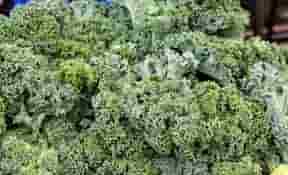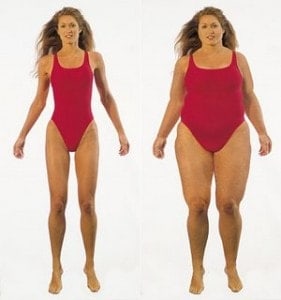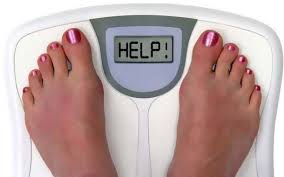It has been proven over and over again how healthy foods lose weight (I.e help to lose unwanted weight). Living a lifestyle of eating healthy foods can prevent weight gain by shedding fats. Did you know that water can reduce a few pounds of fat? Thus, foods that contain lots of water are good for weight loss such as fruits and veggies. However, it is common knowledge to many that fruits and veggies are healthy for the body, but to what extent? One might ask.
According to research at the University of Tokyo, women that consumed fruits and veggies that have high amounts of water have smaller waistlines and are lightweight. Therefore, it will do you a lot of good to consider adding these fruits and veggies (they contain at least 90% of water) to your meal.
We have in the past written a related post on how to lose fat with healthy eating, You may want to check it out.
What Are These Fruits and Veggies?
- Broccoli-This vegetable is rich with fiber and calcium, therefore spice your meal with it and you will see how healthy it is.
- Cabbage-This one is very rich in vitamin C, which makes it to be an antioxidant. It is Cabbage a natural immune booster that works well in losing weight too. Spice your meal with it!
- Lettuce-Contains agents that help to regulate blood sugar and boost the immune system such as manganese, folic acid, and vitamin B. The red and green leaves are found to be richer in nutrients.
- Cauliflower– This is rich in potassium and has the phytonutrients that fight cancer and has a great base of vitamin C and folate. The usefulness of this vegetable can not be overemphasized. Try to incorporate it into your meals by all means.
- Grapefruit– Is yet another food that is best for the health of the heart. It has a soluble fiber that makes it a strong fighting agent against atherosclerosis (Which is a disease of the arteries that is characterized by the deposition of clots by fatty material in the inner walls). It also contains folic acid and vitamin C. The red and pink types have vitamin A and lycopene, which prevent the artery wall from oxidation.
- Radishes– This is a very colorful vegetable that is made up of nutrients like vitamin C, Radishespotassium, and folic acid. Very good for digestion because of the sulfur compounds it contains, and it’s also an antioxidant. You should make use of the leafy part too because it contains more calcium and vitamin C than the roots.
- Spinach-This leafy food contains lots of iron, vitamin K and folic acid. It has antioxidants that fight diseases and agents that prevent age-related macular degeneration such as beta-carotene, vitamin C, and phytochemical lutein. Get down with this food and you will be glad you did.
Now, those are healthy fruits and veggies you could use to shed some weight. I am going to elaborate more on other foods you can as well use to augment or use when you need something different.
There are some foods that are healthy because they will make you feel full longer, as a result, reduce your cravings for eating more food. I hope you get the idea; the more calories you consume, than you burn, the more you gain weight. It’s as simple as that. And you simply consume more calories by eating and eating…. Therefore, below are foods you could use.
Foods That Help In Binge Eating
- Beans– Is very rich in protein which also makes them slow to digest. It is affordable and high in fiber, it makes you feel full longer so that you don’t get to eat every now and then. It is very good food for those that want to lose weight.
- Soup– How about starting your day with soup? Have your meal with a cup of broth Based Soupbased soup. This will help in making you eat less after all. Instead of having cream and butter, have a cup of 100 to 150 calories of soup instead.
- Eggs and sausage– What! You might say…However, in a study that was carried out on a group of obese women that started off their day (breakfast) with about 35 grams of protein made from egg and beef sausage, they felt fuller and ate less throughout the day. They ate far less fatty sugar stuff during the day than their counterpart that had cereal for breakfast!
- Nut– When you want to have a snack on the go, why not go for a handful of pecans, Walnutalmonds, or walnuts. Studies also revealed that people that munched nuts tend to eat less in their subsequent meals.
- Apple– I love an apple…when you chew an apple, it sends a signal to the brain that you have eaten, which will make you feel as though you are full, thereby reducing the craving for more food. Fresh apple has more fiber than any processed juice you can get from the grocery stores. If you can’t resist processed juice you can juice your apple or vegetables with juicing machine.
- Yogurt– A Harvard study that was carried out on more than 120,000 persons for more than a decade; yogurt was linked to weight loss more than any other food that was also studied. However, that does not mean that yogurt induced weight loss, but it stood out among other foods.
Conclusion
With these foods, you will be convinced that healthy foods lose weight when consumed accordingly. It is just common sense that, eat fewer calories and burn more calories, that way, weight loss will be established.
That is why anyone that is truly determined to lose weight or maintain a certain ideal weight should also engage in exercise. This is not only for weight loss but also for your general well-being. Why not cultivate a healthy lifestyle of eating right and exercising right in order to stay on top of your shape and health.
So, why not check out cardio equipment and juicing machine that will help you achieve that so much desired weight loss and fitness.
With that said, if you have any experience you would want to share or a question you would want to ask, why not drop it in the comment box below. We shall be glad to hear from you
I am a health and fitness enthusiast. I take anything and everything that improves my health seriously. Hence, I try to share my knowledge in helping people that wish to up their health status to one that enables them to live strong with confidence.
We also review health and fitness equipment such as treadmills, elliptical trainers, spin bikes. recumbent bikes and many more.






